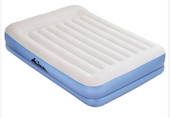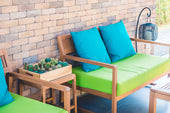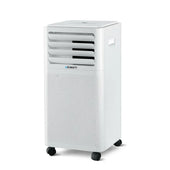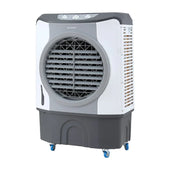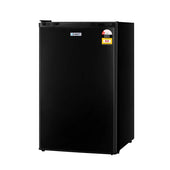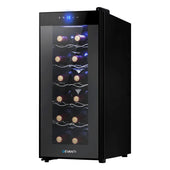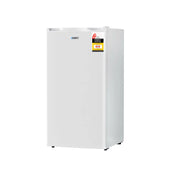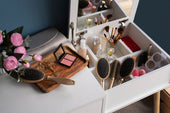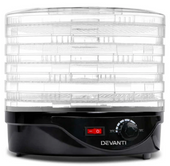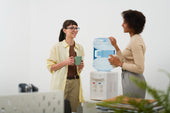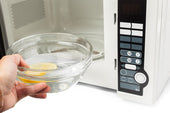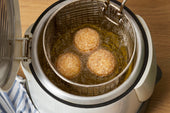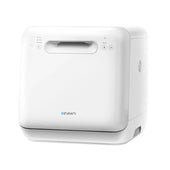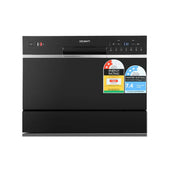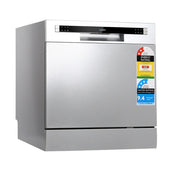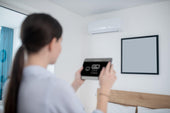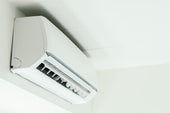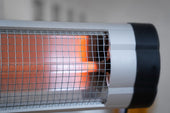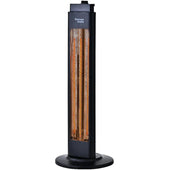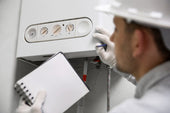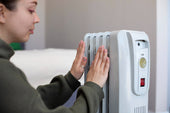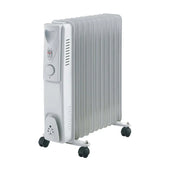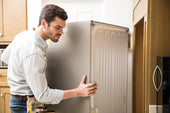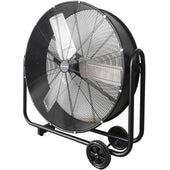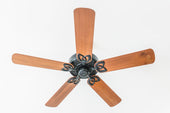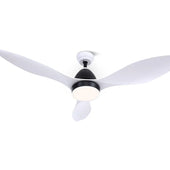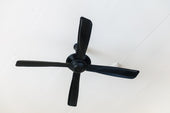Introduction to Natural Shower Screen Cleaning
Natural cleaning methods for shower screens offer an effective, eco-friendly alternative to harsh chemicals. They utilise ingredients like vinegar, baking soda, and lemon juice, which are not only easily accessible but also safe for the environment. These solutions are ideal for removing soap scum, water spots, and grime without causing damage to the surface.
A clean shower screen contributes to healthier air quality and a fresher bathroom aesthetic. Using natural products reduces exposure to toxic substances, promoting better overall wellbeing. Understanding the correct application of these items ensures optimal results, making cleaning efficient and sustainable. For households with hard water or specialised fixtures such as high pressure shower heads, these natural cleaning methods are particularly helpful.
Benefits of Cleaning Shower Screens Naturally
Cleaning shower screens naturally offers numerous advantages that make it an ideal choice for households.
- Health-Friendly: Natural cleaning solutions avoid exposure to harsh chemicals, reducing risks of skin irritation or respiratory issues for individuals.
- Eco-Friendly: Environmentally friendly ingredients help minimise water pollution, contributing to a healthier planet.
- Cost-Effective: Common household items like vinegar and baking soda are affordable alternatives to expensive chemical cleaners.
- Material Preservation: Natural cleaners are gentle on shower screen surfaces, preventing scratches or corrosion over time. This is especially important for maintaining finishes on fixtures such as gold shower heads.
- Odour-Free: Unlike chemical products, natural solutions leave bathrooms free of lingering unpleasant odours, ensuring a fresh environment.
Switching to natural cleaners supports healthier living while maintaining spotless shower screens.
Common Issues with Dirty Shower Screens
Dirty shower screens commonly accumulate residue from soap, shampoo, and body wash, leading to unsightly soap scum. Hard water deposits, caused by mineral build-up, form cloudy spots and create stubborn streaks. Over time, mould and mildew may develop, especially in areas with inadequate ventilation, causing hygiene issues and a musty smell. During Days, dust and grime can settle on the glass, reducing its transparency and shine. Neglecting regular cleaning can lead to permanent stains or scratches, making the screen more difficult to restore. Additionally, dirty shower screens can negatively affect the overall aesthetic of a bathroom, leaving it looking neglected or unkempt. This is even more noticeable when paired with statement fixtures such as black shower heads.
Essential Supplies for Natural Cleaning
To effectively clean a shower screen using natural methods, the right supplies are indispensable. Below is a list of essentials to assemble beforehand:
- White Vinegar: A powerful yet natural acidic solution that dissolves soap scum and hard water stains.
- Baking Soda: A gentle abrasive that works wonders on tough grime and stains.
- Lemon Juice: Adds a fresh citrus scent and boosts cleaning power with its acidic properties.
- Warm Water: Necessary for diluting solutions and rinsing off residues.
- Spray Bottle: Ideal for applying homemade cleaning solutions evenly.
- Microfibre Cloths: Non-abrasive and perfect for polishing glass surfaces.
- Soft-Bristle Brush: Helpful for tackling edges and corners.
A thoughtfully prepared toolkit ensures efficient, chemical-free cleaning. This is especially useful when caring for installations like overhead shower heads, which may collect buildup near the screen area.
Preparing Your Shower Screen for Cleaning
Proper preparation is essential to ensure effective cleaning of the shower screen. Follow these steps to get started:
-
Gather Necessary Supplies: Collect cleaning essentials like a squeegee, microfibre cloths, warm water, white vinegar, detergent, and a spray bottle. Having everything ready will save time.
-
Ventilate the Bathroom: Open windows or switch on the exhaust fan to allow proper air circulation, preventing the build-up of strong smells when using cleaning products.
-
Remove Loose Particles: Use a dry microfibre cloth or a soft brush to clear off dust, lint, and hair from the screen surface.
-
Ensure a Dry Surface: If the shower screen is wet, wipe it down with a clean, dry cloth to better assess stains and marks.
-
Secure the Area: Avoid water splashing by placing towels or mats on the floor under the shower screen.
DIY Natural Cleaning Recipes for Shower Screens
Vinegar and Baking Soda Solution
- Mix equal parts white vinegar and warm water in a spray bottle.
- Spray the solution onto the shower screen and let it sit for 10 minutes.
- Sprinkle baking soda on a damp sponge, scrub the glass, then rinse with water and dry.
Lemon Juice and Salt Scrub
- Combine lemon juice with a pinch of salt to create a paste.
- Apply the paste to the shower screen, focusing on tough spots.
- Scrub gently with a soft cloth, rinse thoroughly, and wipe dry.
Tea Tree Oil Spray
- Add 10 drops of tea tree oil to 500 ml of water.
- Spray over the screen to prevent mildew and mould.
- Wipe clean with a microfibre cloth.
Step-by-Step Guide to Cleaning with Natural Methods
-
Gather Materials: Use white vinegar, baking soda, a spray bottle, microfibre cloths, and an old toothbrush or sponge. Ensure all tools are free from synthetic cleaners.
-
Prepare Vinegar Solution: Mix equal parts white vinegar and warm water in a spray bottle. Shake gently to combine the ingredients.
-
Apply Solution: Spray generously onto the shower screen, focusing on stained or soap-scummed areas. Let it sit for 10-15 minutes to dissolve residues.
-
Scrub with Baking Soda: Sprinkle baking soda onto a damp sponge or toothbrush. Gently scrub the screen in circular motions, targeting stubborn grime or build-up.
-
Rinse Thoroughly: Use warm water to rinse the screen, ensuring all traces of vinegar and baking soda are completely removed.
-
Dry with Microfibre Cloth: Wipe the screen with a dry microfibre cloth to avoid streaks and ensure a polished finish.
-
Inspect and Repeat: Assess for leftover dirt or soap residue. Repeat the process if necessary for tougher stains. This method is especially useful for showers equipped with dual shower heads, which tend to increase water flow and splash on screens.
Tips for Removing Hard Water Stains Naturally
- White Vinegar Solution: Combine equal parts of white vinegar and water in a spray bottle. Apply the solution to the shower screen, let it sit for 10 minutes, and wipe with a soft cloth. Rinse thoroughly.
- Baking Soda Paste: Mix baking soda with water to form a paste. Apply it on the stains using a sponge, gently scrubbing in circular motions. Rinse off with warm water.
- Lemon Juice: Rub half a lemon over the stains to dissolve mineral deposits. Its natural acidity helps break down stubborn buildup.
- Microfibre Cloth: Use a damp microfibre cloth for streak-free drying after removing stains to prevent future marks. For best results near fixtures like electric shower heads, ensure cloths are non-conductive and fully dry.
Preventive Measures to Maintain a Clean Shower Screen
Keeping a shower screen clean can be significantly easier by adopting some preventive measures. Regular maintenance reduces the accumulation of grime, soap scum, and mildew.
Daily Practices:
- Wipe down the screen: Use a squeegee or a microfibre cloth after each use to remove water droplets and prevent mineral deposits.
- Ventilation: Ensure proper airflow by opening windows or using exhaust fans to minimise humidity levels, which can lead to mould growth.
Weekly Routine:
- Inspect seals and edges: Check for any buildup around the screen’s edges and seals, where dirt often collects. Use a soft brush to clean these areas gently. This is particularly helpful in bathrooms with outdoor shower heads that may be exposed to more dust and debris.
- Apply protective sprays: Use specially formulated shower screen treatments to repel water and prevent soap residue accumulation.
Preventive habits save time and preserve the screen’s clarity.
Eco-Friendly Cleaning Hacks for Long-Term Maintenance
To maintain a spotless shower screen while minimising environmental impact, natural alternatives like vinegar and baking soda stand out as effective solutions. A mixture of equal parts white vinegar and water in a spray bottle can be applied to the screen, left for ten minutes, and wiped clean with a microfibre cloth. For showers using portable shower heads, this method helps maintain clarity even with varied water angles.
Additional tips include:
- Lemon Juice: Use lemon juice to dissolve soap scum and leave a streak-free finish.
- Salt and Baking Soda Paste: Combat stubborn spots with a mixture of the two.
- Cornflour for Polishing: Buff with damp cornflour for added shine.
Always ensure materials used, like cloths and sponges, are biodegradable. Regular upkeep reduces environmental strain while preserving the shower’s clarity, especially in homes with water efficient shower heads.
Final Thoughts and Summary of Natural Cleaning Benefits
Natural cleaning methods for shower screens offer a host of advantages. They reduce reliance on harsh chemicals, promoting healthier indoor air and protecting skin from potential irritants. Using ingredients like white vinegar, baking soda, and lemon not only ensures effective cleaning but also minimises environmental impact. These eco-friendly alternatives are cost-effective, often utilising items already available at home. They are an excellent match for bathrooms equipped with specialty fixtures like square shower heads, preserving both glass and hardware finishes.
Moreover, natural cleaners minimise the risk of damage to shower screen seals and frames, which can occur with abrasive commercial products. Incorporating these methods enhances household sustainability and fosters a cleaner, toxin-free living space while maintaining bathroom aesthetics efficiently.










